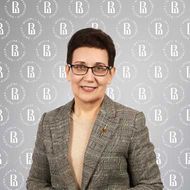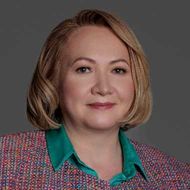- A
- A
- A
- ABC
- ABC
- ABC
- А
- А
- А
- А
- А
-
The School
- ABOUT
- Staff Members
- Doctoral Students
- Joint Departments with Partner Companies
-
RESEARCH ACTIVITIES
- Laboratories
- Series “Advanced Studies in Emerging Market’s Finance” at Springer Nature o Networking with International Academic Associations
- Networking with International Academic Associations
- Journal of Corporate Finance Research
- Research Seminars
- International Conference «ESG Corporate Dynamics: the Challenges for Emerging Capital Markets»
- International Seminar “Systemic Risks in the Financial Sector”
- Yasin (April) International Academic Conference
- International PhD Workshop
- Publications by School of Finance Faculty
-
RESEARCH WORKING GROUPS
- Research Working Group "Innovations in the Banking Sector, its Financial Stability and Prudential Regulation"
- BUSINESS EDUCATION
- Networking with Business Associations
- Networking with Professional Associations
-
DATABASES
-
119049 Moscow, Russia
11 Pokrovskiy boulevard, room S629
Phone:
+7 (495) 772-95-90*27447, *27947, *27190
+7 (495) 916-88-08 (Master’s Programme Corporate Finance)
- Email: df@hse.ru
Head of Corporate Finance Research Center, Dr., tenured professor
Strategic Projects
Strategic Project: Social Policy of Sustainable Development and Inclusive Economic Growth
New Scientific Instruments of Measuring Effects of Transformation into Economic Growth of Human Potential Investment and Their Approbation
The subproject of the School of Finance is designed to reveal the role of a set of personal characteristics of top management and the role of the board of directors in implementation of policies focused on overcoming crises in economy caused by sanctions and on corporate growth.
The increasing role of human capital as a natural component of corporate intellectual capital manifests itself in creating unique dynamic capabilities, i.e. the resources which other companies are scarcely able or unable to replicate and which at present define new types of corporate models, innovation strategies, innovation activity and its results.
Currently there is an increase in number of empiric studies which show a special role of heterogeneity of top management’s behaviour, stem from influence of top management’s personality characteristics, provide the basis for human capital (education, experience, expertise etc.) as well as other cultural characteristics. These two groups of characteristics influence decisions of top management, its response to challenges of the environment, actions of regulatory institutions, corporate growth strategies and particular corporate policies.
Another group of factors which cause heterogeneity is behavioural characteristics of top management based on rejection of or a partial contravention of the principle of economic operator’s rationality. Behavioural characteristics may have a negative impact and be a deterrent for creation of dynamic capabilities as well as for company growth.
Study of a complex of personal characteristics reveals the contribution of these nonfinancial resources into strategies and dynamics of corporate growth, financial performance, innovation, attaining of sustainable development goals. At the same time it is necessary to assess the way in which boards of directors influence efficiency of transformation of top management’s personality characteristics into economic growth at the corporate level and in which they also oppose their negative behavioural abnormalities. Solutions to these problems will enable us to evaluate the extent to which boards of directors will succeed in incorporation of the integrated thinking principles necessary to implement the inclusive economy principles.
Project Participants
Head of the School
Deputy Head of the School
Associate Professor
Research Intern
Research Intern
Leading Research Fellow
Leading Research Fellow
- About
- About
- Key Figures & Facts
- Sustainability at HSE University
- Faculties & Departments
- International Partnerships
- Faculty & Staff
- HSE Buildings
- HSE University for Persons with Disabilities
- Public Enquiries
- Studies
- Admissions
- Programme Catalogue
- Undergraduate
- Graduate
- Exchange Programmes
- Summer Schools
- Semester in Moscow
- Business Internship
- © HSE University 1993–2026 Contacts Copyright Privacy Policy Site Map
- Edit










